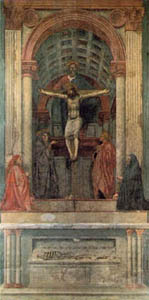Liturgical ritual... or lack thereof
Some fascinating excerpts:
Sacred ritual always presents itself as divinely ordained,15 but the speed with which liturgical changes were introduced, the confusing and often contradictory things said about them, the way in which they were decreed by committees and bureaucratic offices, the continuing debates, the replacement of sacred liturgical books by discardable leaflets, the wholesale destruction of so much that was venerable, and the endless tinkering all had the cumulative effect of making the liturgy seem an all-too-human activity, not a divine action in which humans were privileged to participate but something that they themselves created.
...For a while, in accordance with the traditional understanding of sacramental validity, liturgical changes, even of a fairly radical kind, were said not to affect the underlying truth of the Mass itself, so that virtually nothing a priest might do could affect the sacramental reality, so long as he correctly pronounced the words of institution. But it soon became obvious that it is not possible to separate liturgical issues from doctrine. The principle “Lex orandi est lex credendi” recognizes that changes in the mode of worship can affect belief, and it is obvious that Catholics no longer all share the same theology of the Eucharist. Contrary to the facile explanations sometimes offered, radical liturgical change is not, and cannot be, merely a matter of the same beliefs expressed in new ways. The aversion that some Catholics have toward traditional liturgy, and their embrace of increasingly experimental forms, arise precisely from religious doubt, from a desire to reduce religion merely to some kind of spiritual searching.
...Virtually from the beginning, the Catholic Church, like some other great religions, tolerated and even encouraged a folk piety alongside its official worship, a piety that sustained the faithful in their personal lives. While the Mass itself was celebrated quite formally, in accordance with the often-praised spirit of Roman restraint, personal and subjective piety was expressed through private devotions.
But by suppressing those devotions, and attempting, at least for a time, to make the Eucharist virtually the only legitimate form of Catholic piety, the innovators created an emotional hunger that they then inappropriately tried to satisfy through the liturgy itself. The supreme irony of the Liturgical Movement was that it struggled for decades to make Catholics appreciate the Eucharist as the center of their lives but, once it had achieved its stated goals, participation in the Eucharist fell off sharply in almost all communities, one of the principal causes being the war on popular piety waged in the name of the liturgy. Popular devotions had sustained many Catholics in their faith in a personal way, so that, as they were pruned away to allow the Eucharist to stand out in all its glory, regard for the Mass itself declined.
...Amidst the post-conciliar changes few mantras were intoned with as much reverence as “community”, the achievement of which was said to be the chief purpose of change and the absence of which one of the chief failures of the pre-conciliar Church. But a living tradition is a vital part of every authentic community, so that the abandonment of so much tradition undermined the very goal that reformers ostensibly sought to achieve. The more the ideal of community was extolled, the more elusive it remained, to the point where for some people the local parish itself could no longer function as a community and they gathered for worship only with people of like mind, their refusal to participate in the ordinary rituals of the Church, their desire to find specialized celebrations (in either “liberal” or “conservative” versions), becoming a continuing symbol of the fragmentation of community.
Wow. Basically, all of my thoughts, ponderings, and fruits of contemplation over the meaning of liturgy are neatly summed up in this keynote address by Mr. Hitchcock. I thank him profusely for setting down in such a readable format my own considerations regarding liturgy's role in Christian worship! :)
And Hitchcock even cites someone the progressives usually try to claim for themselves:
Secular personalism is a kind of craze for individuality, a rage for self-manifestation in which the highest value is the recognition of one’s own uniqueness…. On the contrary, Christian personalism does not require that the inmost secrets of our being be made manifest or public at all … what is manifested, proclaimed, celebrated and consummated in the liturgy is not my personality or yours but the personality of Christ the Lord…. We sing alike, we pray alike, we adopt the same attitudes. Yet oddly this “sameness” does not wound our individuality.
~Thomas Merton (Liturgy and Spiritual Personalism, "Worship", XXXIV, 9 (October 1960), 503-5)










0 Comments:
Post a Comment
<< Home